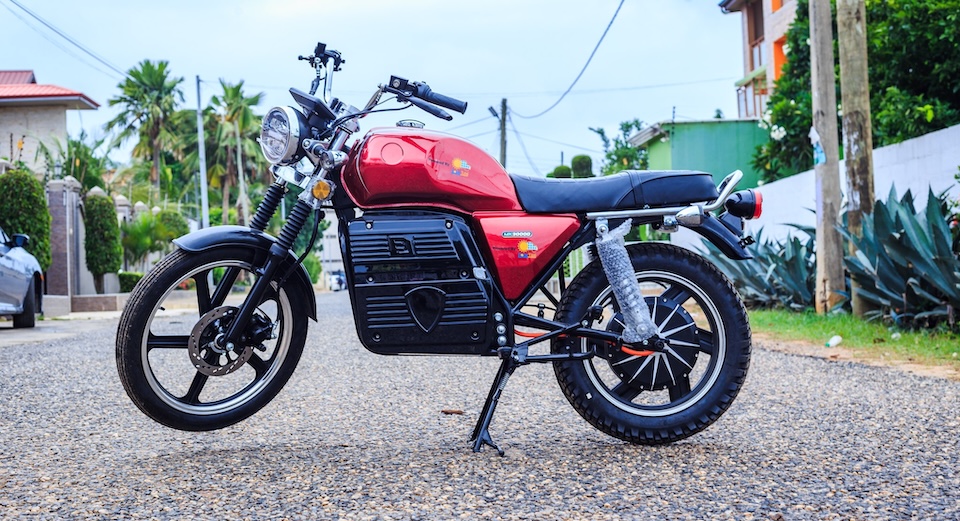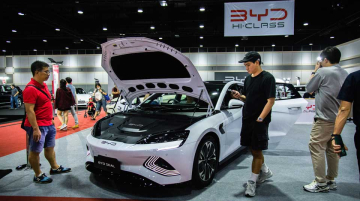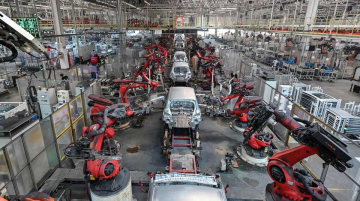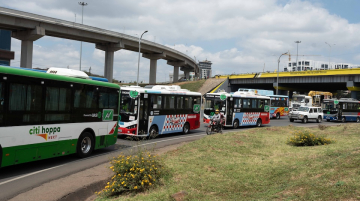
Many African countries are now embracing electric vehicles (EVs), but Ghana’s Solar Taxi was ahead of the curve. Launched as a pilot project in 2019, the company initially operated a solar-powered taxi service, importing vehicles and components from China. Today, it has grown into Ghana’s leading e-mobility company and ranks as the third-largest electric vehicle assembler in Africa.
As demand for EVs increased, Solar Taxi expanded its operations beyond ride-hailing. “We are an e-mobility company,” says Emmanuel Agyapong, the company’s chief operating officer. “The taxi service is just one unit—we do much more.” The company now sells electric cars, bikes, and even buses to meet Ghana’s evolving transportation needs.
Solar Taxi transitioned from leasing e-taxis to supplying EVs across multiple sectors, including e-bikes, passenger vehicles, trucks, and buses. This shift aligns with the rising demand for electric transportation in Ghana. According to the Ghana Shippers Authority, the country imported approximately 17,660 plug-in electric vehicles between January 2017 and December 2021. During the same period, the West African country imported 9,431 motorized electric two- and three-wheelers, primarily from China.

EV Landscape in Ghana
Ghana’s top three vehicle importers control 50% of the country’s EV market. Even though Solar Taxi does not fall in this category, the company has tapped into Chinese technology to design and locally assemble low-cost EVs which are also sold in Nigeria, Togo and Burkina Faso.
Solar Taxi started by combining low-cost Chinese solar technology with Chinese mobility tech to develop a truly unique transportation model that is cleaner and more affordable than standard EVs.
In keeping with the original plan, Agyapong adds they also provide solar power solutions to EV customers who need them.
Challenges to EV Adoption in Ghana
Despite the progress Solar Taxi has made, EV adoption in Ghana still faces some challenges. One of the main obstacles is affordability. For instance, a new electric sedan will cost about $26,000 while prices for a similar internal combustion engine (ICE) vehicle are as low as $10,000.
Agyapong explains that EVs are generally more expensive than ICE vehicles, and in Ghana, most people are used to second-hand cars. He adds that many consumers compare the price of a brand-new EV to that of a used ICE vehicle, which makes electric vehicles seem costly. This is exacerbated by limited financing options for EVs since it is often very difficult for consumers to secure vehicle loans in Ghana.
Charging infrastructure is another critical factor in EV adoption. Agyapong says there are just five fast-charging stations in Accra, prompting consumers in the rest of the country to understandably be concerned about so-called “range anxiety” if their battery-powered cars run out of power.
The government, though, says that will soon change with the installation of 1,000 electric charging stations by 2028.
Popular Solar Taxi EV Models in Ghana
Despite ownership challenges, Chinese EVs dominate Ghana’s market, with two-wheelers—primarily e-bikes—being the most common.
These e-bikes are widely used for delivery and courier services, with over 400 currently in operation. Among four-wheelers, brands like BYD and Chery are the preferred choices in Ghana, thanks to their early market entry and proven reliability.

To increase the uptake of these EVs, Solar Taxi is partnering with different organizations to create and raise public awareness and understanding of EV technology. This is in addition to financial institutions who are helping with loans to make purchasing an EV easier.
Local Assembly and Battery Recycling in Ghana
To further reduce the cost of EVs, Solar Taxi not only assembles e-bikes but also increases the use of locally sourced materials. “We are incorporating local materials like plastics and steel, but it’s challenging since we don’t yet have a full production plant,” Agyapong explains. Currently, most of their assembly process involves importing vehicle parts from China and India for local assembly.
Beyond EV manufacturing, the company is also tackling e-waste by repurposing end-of-life EV batteries. “We engineer and repurpose lithium-ion batteries that have reached the end of their life cycle in EVs,” Agyapong explains. Rather than discarding used batteries, Solar Taxi refurbishes them for energy storage solutions, providing power for homes and businesses. While new batteries are still imported from China, the company has trained a local team to handle battery maintenance and repurposing.
To scale its operations and stay at the forefront of EV technology, Solar Taxi is investing in local expertise. The company brings in experts from Germany and China to train its workforce, enhancing their technical skills and capabilities.
Solar Taxi’s journey highlights the potential of combining Chinese technology with African innovation. As Agyapong puts it, “Africa has the opportunity to lead in this space. If we work together and trade among ourselves, we can create a thriving EV ecosystem that benefits everyone.”









